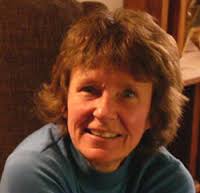Today’s post is by guest, colleague, and dear friend–Maryo Gard Ewell

2016 marks the 50th anniversary of the start of The Arts in the Small Community project led by Robert E. Gard, and we invite you to celebrate with us!
Robert E. Gard was a visionary in the field of community arts. While many people in the 1940’s and beyond were talking about “access” to the arts for people, typically, that meant that Everyman should be in the audience or the gallery to witness America’s finest artists.
Gard was clear that it meant more than this: that Everyman had a right to create, converse and critique. “In terms of American democracy, the arts are for everyone….” His entire career, beginning in the 1930’s when he worked with farmers in Upstate New York to write and produce plays about the experiences of their communities, to a speech he gave just before his death in 1992, was devoted to this vision.
In 1966, his Office of Community Arts Development in the University of Wisconsin-Madison College of Agriculture received the first “access” award made by the newly established National Endowment for the Arts. This three-year project was to foster locally-based arts development in five rural Wisconsin communities – an unheard-of idea at the time. The result was a book, distributed free by the thousands – The Arts in the Small Community: A National Plan. He began with the conviction that everyone has an important story to tell, dance, write or sing about, and from that unleashing of individual creativity groups could to respond to the needs of their community. This book was the first of its kind.
Here are just a few ways the Robert E. Gard Foundation will celebrate in 2016:
- A fall Symposium with the Johnson Foundation at Wingspread, in partnership with the Wisconsin Arts Board and the Racine Arts Council, gathering some 30 of the nation’s leading thinkers on community arts development. We’ll be blogging and creating short video pieces from Racine.
- A reader of Gard’s thoughts on community arts development to be published by Americans for the Arts, with short excerpts of his ideas pulled from speeches, reports, books, articles, poetry, and a diary, as well as from The Arts in the Small Community and its many ancillary publications.
- An oral history series in conjunction with UW-Madison’s Oral History Program and the Wisconsin Arts Board, capturing the thoughts of faculty from the UW’s extraordinary arts extension program and their students.
The Arts in the Small Community program was a three-year experiment, so celebrations can be planned any time into 2019, when the book actually was distributed. The Gard Foundation board invites you to celebrate this milestone in your own way. Can you…
- Read and let people know about The Arts in the Small Community? Although it was addressing rural towns’ needs from 50 years ago, and the stories are dated (after all, there were very few rural arts councils at the time!) the philosophical sections are universal, powerful and lyrical, and apply to small towns, urban neighborhoods, immigrant communities. The book can be accessed and downloaded free here.
- Share information about the book with your members and invite them in turn to do something appropriate?
- Have a discussion about those philosophical sections of The Arts in the Small Community … how are they current to you and those that you serve?
- Host a forum to address the “big ideas” of the book?
- Propose a conference session around these ideas?
- Write an article or blog?
- Link to the Gard Foundation website from your own. As details become finalized we will adding information?
- Share your ideas on the Gard Foundation Facebook site? Or #Gard50?
Maryo Gard Ewell, President
Robert E. Gard Foundation
——————–
 Maryo Gard Ewell of Gunnison, Colorado, is a long-time advocate for community-based arts. She has worked for community arts councils in Connecticut and for state arts agencies in Illinois and Colorado. She is past president of the Gunnison Arts Center, a board member of the Community Foundation of the Gunnison Valley, and president of the Robert E. Gard-Wisconsin Idea Foundation. Honors include the 2012 Arts Education Advocacy Award from Think 360 Arts; the 2004 Arts Advocacy Award from the Gunnison Arts Center; the 2003 “Arts Are The Heart” award for service to the arts in Colorado; and in 2001 an Honorary Doctor of Humane Letters degree from Goucher College. Currently she co-teaches Cultural Ecosystems for the MA in Arts Administration program at Goucher College. In the context of this blog post it should also be noted that she is the daughter of Robert E. Gard.
Maryo Gard Ewell of Gunnison, Colorado, is a long-time advocate for community-based arts. She has worked for community arts councils in Connecticut and for state arts agencies in Illinois and Colorado. She is past president of the Gunnison Arts Center, a board member of the Community Foundation of the Gunnison Valley, and president of the Robert E. Gard-Wisconsin Idea Foundation. Honors include the 2012 Arts Education Advocacy Award from Think 360 Arts; the 2004 Arts Advocacy Award from the Gunnison Arts Center; the 2003 “Arts Are The Heart” award for service to the arts in Colorado; and in 2001 an Honorary Doctor of Humane Letters degree from Goucher College. Currently she co-teaches Cultural Ecosystems for the MA in Arts Administration program at Goucher College. In the context of this blog post it should also be noted that she is the daughter of Robert E. Gard.
——————–
Engage!
Doug

Hi Doug and Maryo,
I am a recent follower of your blog and am excited to learn more about Robert Gard’s projects and philosophies after reading this post by Maryo. I was especially excited to learn of his work through this blog because I just finished reading James Bau Graves’s book Cultural Democracy: The Arts, Community, and the Public Purpose for an Arts Leadership class I’m taking at the University of Southern California. The idea of prioritizing art that is more culturally and creatively relevant to real communities is one that is so often over looked in a country that views not-for-profit art as limited Euro-inspired symphony orchestras, ballet companies, opera companies and museum spaces. I am an Asian American oboist born in rural central California who frequently plays pieces by European composers in a western european idiom in a European-inspired orchestra setting and venue–my education and vocational culture is rooted in this form of art! I wondered while reading the book and this blog post (though I do need to read Mr. Gard’s work) how the already established arts organizations such as symphony orchestras can serve the community while continuing to stay true to the art form and traditions that exist. Do the traditions matter anymore to anyone besides the artists themselves? And do the artists’ desire for the tradition provide enough of a justification to maintain them? I’d love insight!
Thank you for your work!